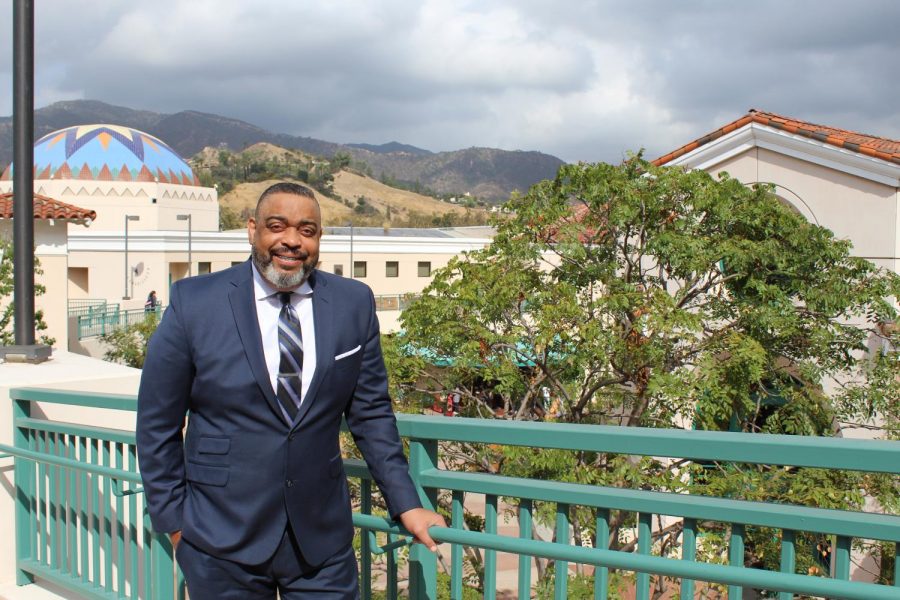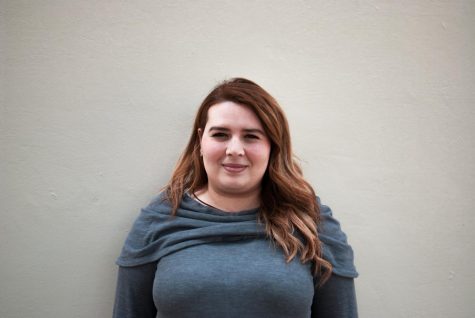#HillStrong: Defeating the Odds
“I get up every morning and think about hope, because I come here to play as hard as I can, I give it everything,” said Robert Hill, the dean of student services at Glendale Community College. “I go home exhausted. When I walk in that hallway, it’s game day. Every single day.” The dean exemplifies the idea of service in his day to day job, which he says is a calling. The desire to help comes from his parents.
Hill grew up in Orange County, Calif. “I got two all-star parents, I don’t come from the typical black, broken home, single parent, you know,” said Hill. “I didn’t have that, so I don’t have any excuse but not to be successful.”
After he came back from military, he went to community college. He explained that he found his love for working at a community college because as a student he was so inspired by the people at his college who always treated him with love and respect. He figured that if he could replicate the treatment he got, he could make a “powerful difference in the world.”
Hill came to Los Angeles 20 years ago. He came to GCC three years ago and has 17 years of community college experience under his belt.
When he’s not trying to make a difference at GCC, his seven daughters and volunteer work keeps him busy. Family, friends, and relationships are a big part of who he is, and he believes that we are better people when we get along with each other.
“I know that’s a difficult concept for people, especially right now,” Hill said. The one thing that inspires him to keep going is hope. “The American culture is nothing without courageous people, you know. Hate will never, ever, ever, be the platform that stands. Any nation built on hate can never last. We got to have hope and we got to have love. We got to find a way to love one another, without tearing each other apart. And that’s what I believe in. I wake up every day saying you know what, I got the most important job in the world, because you know what I got to do? I got to teach people how to love one another.”
As the dean of student services at GCC, Hill’s primary focus is academic counseling, and he believes that the key to success is to create a good relationship with the students, and to be someone that inspires and motivates them to keep going. “Do you know how to tie your shoes? Have you ever tried to teach a three-year-old to tie a shoe?” Hill asked. “Think about it, think about how complex that is of a skill. See here’s the thing, I don’t care what color you are, I don’t care what gender you are, OK? If you can tie your shoes, you can learn. Who is going to inspire you to learn how to tie that shoe? That’s the critical thing, that’s the core. We are so worried about planning this and that, we don’t get to the core soul of people. I’m not ever going to be that person that gives that up. That’s what I do the best. I get to the soul and the core of the human spirit.”
Hill lives a hectic life, he explained, where he only gets two hours of sleep per night. “My mother always told me ‘you’re so nosy, you’re afraid you’re going to miss out on something,’ and that might be true,” he laughs. “[But] lately, it might be because I’m happy to be able to wake up.”
Twelve years ago, Hill was diagnosed with cardiomyopathy, a condition that affects the heart muscle. He was told he only had the functionality of half a heart, and his attitude was to take a couple of drugs and keep it pushing. In the beginning of this year, he started having complications more frequently than he has ever had, and went in and out of the hospital.
In February, he developed a stomach pain that never seemed to go away.
Then, one day, the pain started to take over and he started considering if he should go to the hospital or just take some Pepto-Bismol and go to bed.
He was afraid the hospital was going to think he was a hypochondriac. After a while, he ended up taking an Uber to Cedars-Sinai hospital.
“I get in there, and the intern doctor she gives me a look like she had seen walking death,” said Hill. They gave him some drugs and he went to sleep. When he woke up, the doctor was standing by his bed and said, “‘I’m glad you woke up.’” Hill continued, “She goes, ‘Mr. Hill I got some good news, bad news, and more good news.’”
The doctor explained that his blood pressure was stabilized but that if he went off the medication he had been given, anything could happen. The doctor even said that if Hill would get off this medication, that he could die. “Now, think about if I took that Pepto-Bismol and didn’t go there,” he said.
Hill was at the top of the list for a heart transplant, but there was still waiting time involved. His mental capacity was positive. He had to fight for his daughters. One of his daughters even said he looked “like hell,” which meant he had to be strong for his family.
A heart came in, and it was prepped, but it wasn’t right for him. There was a discussion about whether to put him on an artificial device, a left ventricular assist device or LVAD, which is a mechanical device that helps the heart pump.
Due to the heavy medication Hill was taking for his heart, his kidney took a massive hit.
After three months of waiting with no heart in sight, his doctor said his only option was to get the LVAD. They notified his family and started preparing him for the surgery. The doctor had to postpone it. The day after that notice, Hill was being prepared for surgery again.
When his nurses started to roll him out for surgery, he woke up and made a comment about that he was finally getting the LVAD. “They stopped pushing my bed when I said it,” Hill explained, “and they started crying.” They were crying because they had become friendly with Hill and come to care for him. Then, they told him the big news. “You’re not going to believe this, but you’re getting a heart.”
Hill didn’t only get a heart, he also got a new kidney.
“I will have the most energy and I will have the greatest spirit, and always be happy no matter what,” said Hill. “Everybody is looking at me, they depend on that. I have to be an example for hope and love.”
Hill is here today thanks to organ donation. “Every single day, I think about those two people that lost their lives.” He said, “now when I wake up at 4 a.m., I always give thanks to God, personally that’s my faith, and say thank you for another day.
Because it was obviously not promised to me, and there was a lot of people that made that sacrifice for me to be here. I don’t know what I’m supposed to be doing, but I know one thing, it will reveal itself to me, and I will accept it, and I will give it everything I have got, every single day of the week.”


